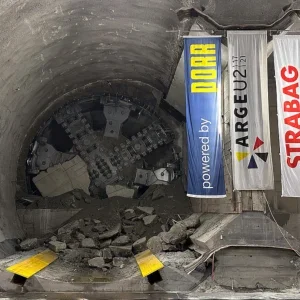In the UK, newspaper The Sunday Times has reported claims by a former Strategic Rail Authority (SRA) economist that Britain would be US$18bn better off if the Channel Tunnel had never been built.
The claims are based upon a study produced by Richard Anguera when he was at the SRA before it became absorbed into the Department for Transport (DfT). The study estimates the total costs and benefits to the British economy from the construction and operation of the tunnel, which opened in 1994.
Although no government money was invested in the construction, which ballooned in price from US$8.4bn to US$17bn, British Rail spent in the region of US$1.9bn on works related to the tunnel as it built up its infrastructure feeding to the tunnel.
Freight and passenger traffic forecasts have generally been two to three times higher than levels encountered. Passengers peaked in 1998 at 18.4M, although duty-free shopping was abolished that year leading to a downturn in numbers that Anguera said continues.
The tunnel costs to date have been US$22.6bn, with benefits of US$22.6bn said the study. If investors’ losses are included, the tunnel has a net present value of -US$18bn. In cost benefit terms, at present, the Channel Tunnel has not been a viable project according to the report.







